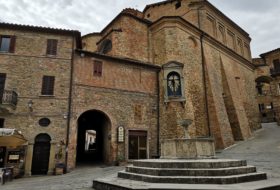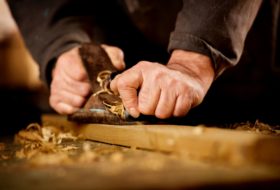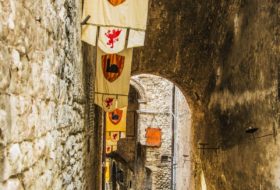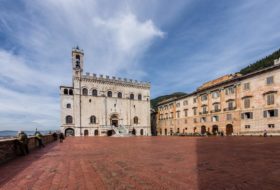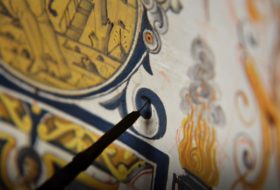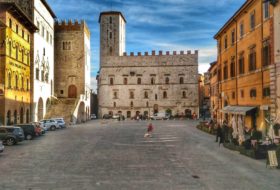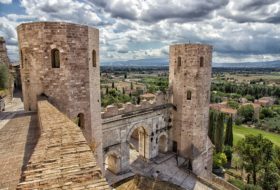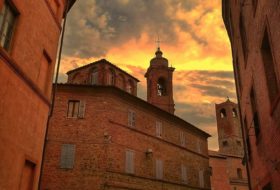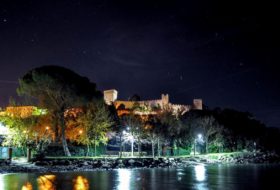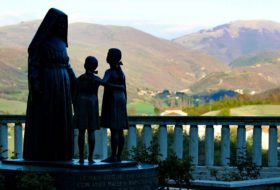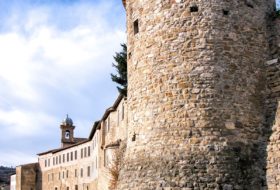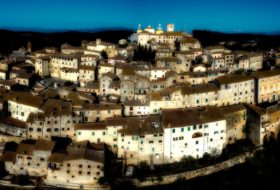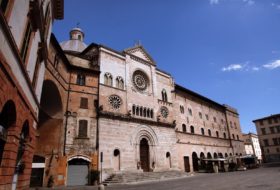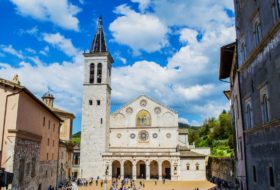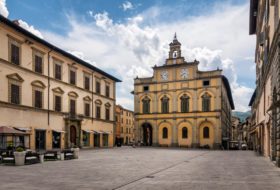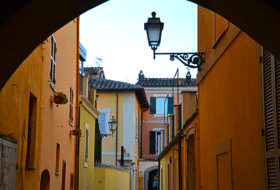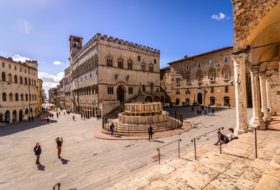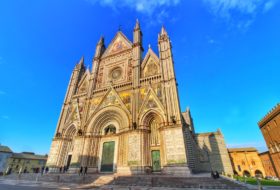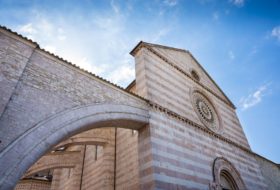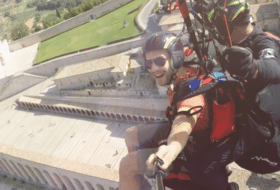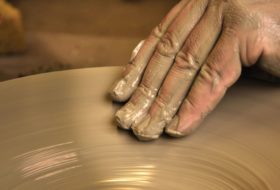Volver a la exploración
Guided tour of Panicale
Why not take a trip to Panicale to discover its scenic, artistic and architectural wonders? Admire the village that stands on an elevated position and overlooks the hills that lead to Lake Trasimeno together with our specialised guides and enjoy an exciting day out.
You can visit the village following the oval-like curve of its paths, which surround the hill on which it stands. Starting from the bottom we’ll see Piazza Umberto I whose centre houses an ancient octagonal cistern in travertine dating to 1473, now a fountain. Moving upwards, we will stop in front of the Chiesa Collegiata di San Michele Arcangelo to admire its solemn and sumptuous style. Inside, in the apse, you will behold the ‘dell’Annunciazione’, a beautiful fresco by Masolino da Panicale. The square of the same name is dedicated to this artist and is one of the most characteristic and charmingly ‘old-world’ parts of the village; in Piazza Masolino, in fact, you’ll see the 14th-century Palazzo del Podestà, built in stone in Gothic-Lombard style and standing elegantly at the highest point in the historic centre. From here you’ll get stunning panoramic views all round. Not far from the historic centre, the Oratorio di San Sebastiano will surprise you with some jaw-dropping works: the huge fresco by Perugino ‘Martirio di San Sebastiano’ which occupies an entire wall, a canvas depicting ‘La Madonna delle Grazie’ by Pomarancio and the ‘Madonna in Gloria tra Sant’Agostino e Maria Maddalena’ recently attributed to the famous Raphael. We will also see some of Panicale’s other gems, such as the Teatro C. Caporali, an Italian-style theatre and one of the smallest in Italy, which has a work by Piervittori depicting Boldrino da Panicale in the act of receiving the keys to Perugia. We will continue our tour with a visit to the former church of San Agostino, which now houses the Museo di Tulle Anita Belleschi Grifoni, where you’ll be able to admire refined tulle embroidery and numerous artefacts made according to the renowned and refined local creative technique of Ars Panicalensis.


